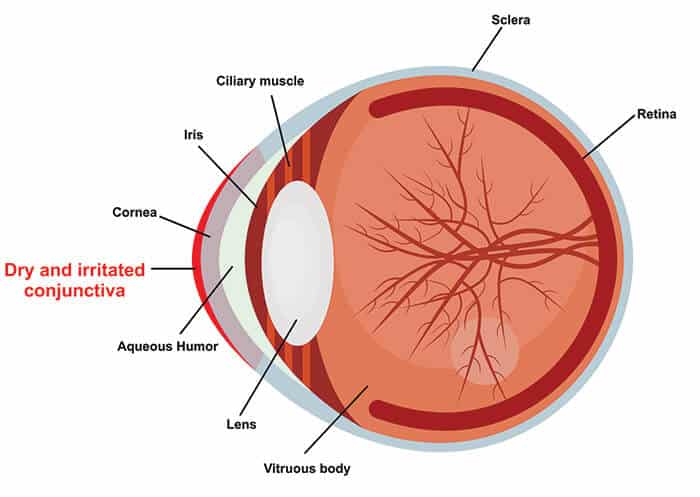Dry Eyes
Dry Eyes
Are you experiencing the discomfort of dry, irritated eyes? At All Eye Care, P.A., we understand the impact that dry eye syndrome can have on your daily life, and we offer personalized dry eye care to help alleviate symptoms and improve ocular comfort. Led by Dr. Rugwani, our compassionate team is committed to providing effective solutions to restore moisture to your eyes and enhance your overall well-being.
Understanding Dry Eye Syndrome: Overview, Causes, and Symptoms
Dry eye syndrome is a common condition characterized by insufficient tear production or poor tear quality, leading to inadequate lubrication and moisture on the surface of the eyes. This can result in a range of symptoms, including irritation, redness, burning, itching, grittiness, and blurred vision. Dry eye syndrome can be a chronic and progressive condition that requires ongoing management to relieve symptoms and prevent complications.


Causes
Dry eye syndrome can be caused by various factors, including:
- Aging: The natural aging process can lead to decreased tear production and changes in tear composition.
- Environmental Factors: Exposure to dry or windy climates, air conditioning, heating, and smoke can exacerbate dry eye symptoms.
- Medical Conditions: Certain medical conditions such as autoimmune diseases (e.g., Sjögren’s syndrome), diabetes, thyroid disorders, and vitamin deficiencies can contribute to dry eye syndrome.
- Medications: Some medications, including antihistamines, decongestants, antidepressants, and hormonal therapies, can reduce tear production or affect tear quality.
- Lifestyle Factors: Prolonged screen time, contact lens wear, insufficient blinking, and poor eyelid hygiene can exacerbate dry eye symptoms.
Symptoms
Common symptoms of dry eye syndrome may include:
- Dryness
- Irritation or burning sensation
- Redness
- Excessive tearing
- Blurred vision
- Sensitivity to light
- Feeling of grittiness or foreign body sensation in the eyes

Comprehensive Eye Evaluation
A comprehensive eye exam, including evaluation of tear film quality, tear production, and ocular surface health, is essential for diagnosing dry eye syndrome and determining the most appropriate treatment approach.
Artificial Tears and Lubricating Eye Drops
Over-the-counter artificial tear drops and lubricating eye gels can help supplement natural tear production and provide temporary relief from dry eye symptoms.
Lifestyle Modifications
Simple lifestyle changes can help alleviate dry eye symptoms, such as:
- Using a humidifier to add moisture to the air
- Taking frequent breaks during prolonged screen time
- Practicing good eyelid hygiene
- Avoiding exposure to smoke and environmental irritants

